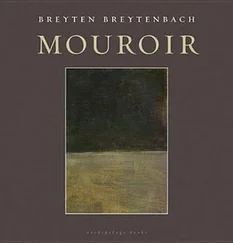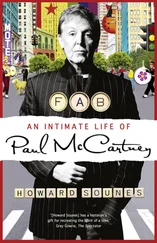What do you want, I have nothing, Bernard says. The old man shakes his head. It looks as if he has difficulty speaking. Then he says: Warmth. All I want is some warmth. Why come to me? Bernard asks. There’s a flophouse on Bowery. Why don’t you go there? No, no — the old one protests — my legs won’t get me that far. People steal your underwear. I just need some warmth. I won’t bother you. Tomorrow, I’ll move along tomorrow, promise. Can I lie down here with you?
With an expletive and a grunt Bernard covers his face again. But now he can’t find the relief of dark sleep. After about ten minutes he lifts the blanket. The old man is sitting on his haunches some five yards away, arms wrapped around his knees, staring at the ground. Hey you, you old-timer! — what’s your problem? Bernard asks. Are you sick?
The old man smiles and repeats that there’s nothing wrong with him, he’s just tired and looking for some warmth. That he intends moving along first thing in the morning. Look, he says, and opens one hand to show a coin.
Bernard sighs and scratches himself. Then he reluctantly motions to the old man to come over. In another faraway place, a lifetime ago, an ancient one once said to him with a toothless complicit and wet smile: Us sinking rats don’t abandon one another. He moves closer to the wall, lifts the blankets and tells the old man to get down but not to try any funny tricks or else he’ll smother him with his own cap. I’m not that kind. The old man snuggles up as close to Bernard as he dares and pulls the blankets over him. He says thank you several times. After a while he announces: My name is Jesus Smoke. Bernard says he’s not interested, didn’t ask, and in any case it is a silly fucking name. He can feel the slow heat of the old man seeping in under their shared covering and finally it is not unpleasant to drift off to sleep in this brooding, enhanced warmth.
It must have been well past midnight when he wakes up to a low monologue interspersed by sobs. The old man is addressing some absent person, perhaps a forgotten god, alternately telling what his life has been like and urgently attempting to convey a message. Tell Lilac I didn’t mean it, I just got lost, he says. He seems agitated. I got the money, Lord — he says loud and clear. The coin glistens in his open palm. Bernard angrily jabs the old man in the ribs, curses, tells him to shut up and let decent folk get some well-deserved rest. Jesus Smoke shudders as if his frail frame is rent by a suppressed groan, falls silent, rolls over on his back. He has taken off his cap, which he now clutches to his chest. The lips quiver as if from the backwash of the earlier speech. There is a silver tear in one of his wide-open eyes. I got the money, Lord — he says again, a little softer now.
When Bernard wakes up the next morning it takes him some time to remember where the unfamiliar weight of another person next to him comes from. Wake up, he says and prods the old man. Jesus Smoke — what fucking kind of name is that? Are you a freak, or what? When the old man doesn’t respond Bernard struggles out of the blankets and sits up. The old man is lying on his back, the hands crossed on his chest, the coin just protruding from his closed lips, and his open eyes, opaque and grey now, are still wet. The dark face, though very old, is remarkably smooth.
“Poetry is about repetition,” Karen Blixen wrote. And when we repeat, as long as it is not just empty patternmaking, we bring about space because the ‘super-structure’ of meaning is weakened and other aspects of writing are foregrounded. In a similar vein, I already suggested several times that writing is a consciousness-expanding activity for both writer and reader, if only because it brings sharpened awareness of what we cannot say or would have liked to say better. After all, the more you expand the greater the space of the unsaid and the unsayable around you; the more we know about the horrors of warfare, for instance, the greater will be our sense of inadequacy at expressing it. The matter of consciousness (not that which we are conscious of — people, places, situations, desires, even thoughts) is, for lack of a better concept, a mind-picture. But it remains that only: a fleeting glimpse, a dream and an unconscious perception, a negative space, unless and until it materializes in writing, painting, music or other forms of expression / creation. We have to create in order to know. The word and its world will be the secreted gray presence of awareness.
Where do these mind-pictures that we work with originate? An easier question may be: what sets them off? (For who says the pictures don’t pre-exist?) Obviously, there is a sensory stimulus at the outset, a perception. The field of reception / transformation of the impulse, I’d suggest, consists of memory and imagination, immediately prismating (prison-mating) into combinations and cross-breeding of the two, giving way to invention, intuition, knowledge, experience, analysis. . What we can ‘know’ of the ‘outside’ world also comes to us through imagination (apprehending) and memory (relating and situating). In fact, I think memory and imagination so closely shade one another that they may as well be two faces of the same mirror.
Who looks into the mirror? Why, the face looking out! Or the face remembered by a connection of imaging. That is imagination (or image-generation). That is, the face imagined by memory.
But this matter (the mind-picture), because of its specific consistency made up of becoming, when passing into the flesh of words ‘takes on a life of its own.’ It ‘re-members’ through patterns of references and repetitions which exist independently of the intention of the rememberer; what would seem to be an autonomous consciousness ‘breathes’ through the rhythms and is ‘grounded’ in textures; it ‘invents’ or imagines or colonizes by allusions to the ‘known,’ presenting new variations, stretching the expected meanings of the material by breaks and jumps that arise from the core or the nature or the history of the words; and thus it ‘presents’ (presences) itself in some ‘sense-making’ (presence-making) manifestation of its own. You could say the mind-picture has its own past, which you can only guess at.
Could we be chiming with rhythms and sounds coming from way beyond? Do the ancestors, going back all the way to dust, speak through us? Are we just receptors? What if the Unknowable were just the (provisionally?) Unsaid? And what if we all knew the Unsaid which, potentially at least, is just waiting to be pictured by mind? Could it be that we are giving shape (pre-sence) to the Unknowable in the process of translating mind-pictures into material modified by its (own) consciousness? Creation is repeating the known — as exorcism and transformation — and making the unknown familiar; writing then a pealing silence. .
Let us approach it from another angle.
Manuel Rivas, a Galician writer (in an interview with Libération , 26 October 2000) claims that he started writing short fiction because it is the most popular genre in Galicia. It is popular because it descends from oral literature. And one can see how the short story has been shaped in contents and form by oral transmission. To hold the listener’s attention the storyteller must not go on for too long; he (and in many cultures it was more likely a ‘she’) should not make it too difficult; at the same time there must be enough flesh to engage the audience, the intrigue (or the lesson) must be kept alive and carried to the very end, and style (vocabulary, rhythms, tenses, voice) must not come between narrator and listener. (Or, one could say, between teller and told.)
The material must be allowed to stand on its own.
Читать дальше












